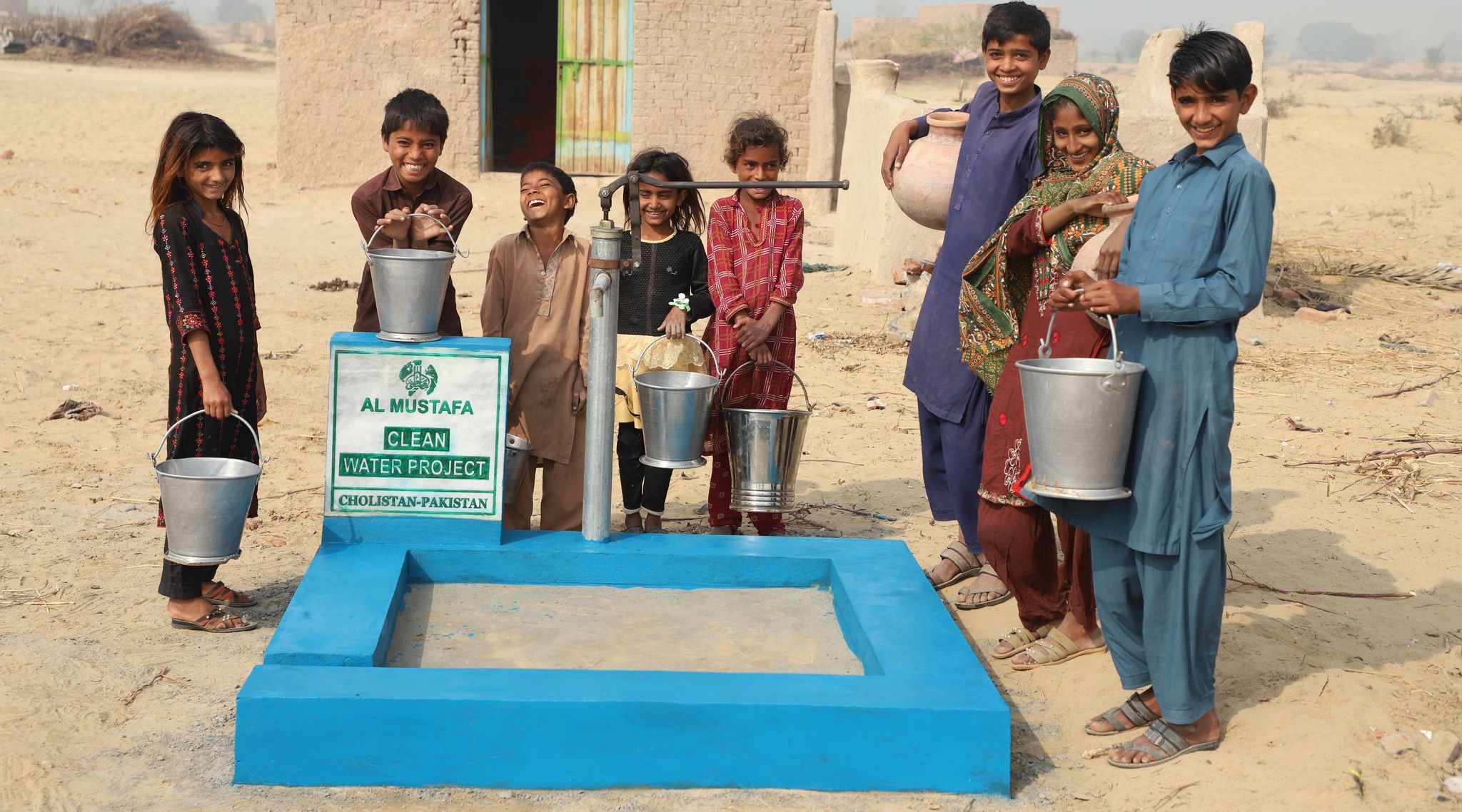Access to clean water is a fundamental human right, yet millions of people around the world still lack access to safe and reliable drinking water. In Pakistan and Azad Kashmir, inadequate infrastructure, pollution, and natural disasters have contributed to water scarcity and contamination, posing significant health risks to communities. However, through charitable initiatives and donations, individuals and organizations in the UK can play a vital role in addressing this pressing issue. In this article, we’ll explore the challenges related to water access in Pakistan and Azad Kashmir, highlight the importance of clean water initiatives, and discuss ways in which donations from the UK can make a meaningful impact in improving water quality and availability in these regions.
The Water Crisis in Pakistan & Azad Kashmir
Pakistan and Azad Kashmir face significant challenges related to water scarcity and contamination. Despite having abundant water resources, inadequate infrastructure, population growth, and environmental degradation have led to water shortages in many parts of the country. Moreover, poor sanitation practices and industrial pollution have contributed to the contamination of water sources, leading to widespread health problems such as waterborne diseases and malnutrition, particularly among vulnerable populations.
In Azad Kashmir, the situation is further compounded by the region’s mountainous terrain and susceptibility to natural disasters such as earthquakes and floods. These disasters can disrupt water supply systems, damage infrastructure, and exacerbate the already precarious water situation, leaving communities even more vulnerable to waterborne illnesses and other health hazards.
The Importance of Clean Water Initiatives
Access to clean water is essential for ensuring public health, sanitation, and economic development. Clean water initiatives not only provide communities with safe drinking water but also promote hygiene practices, reduce the incidence of waterborne diseases, and improve overall quality of life. By investing in clean water projects, communities can break the cycle of poverty and disease, empower women and girls, and create opportunities for education and economic growth.
Ways to Donate from the UK
Donating to provide clean water in Pakistan and Azad Kashmir is a tangible way for individuals and organizations in the UK to make a positive impact on the lives of communities in need. There are several ways to contribute to clean water initiatives:
Supporting NGOs and Charities: Numerous non-governmental organizations (NGOs) and charities are actively involved in clean water projects in Pakistan and Azad Kashmir. By donating to reputable organizations, individuals can support initiatives such as water well construction, water purification systems, and sanitation facilities that directly benefit communities in need.
Fundraising Campaigns: Participating in or organizing fundraising campaigns can help raise awareness and funds for clean water projects. Whether through sponsored events, online crowdfunding platforms, or community initiatives, fundraising efforts can mobilize support and resources to address the water crisis in Pakistan and Azad Kashmir.
Corporate Social Responsibility (CSR) Initiatives: Companies and businesses in the UK can demonstrate their commitment to social responsibility by supporting clean water initiatives through corporate donations, employee fundraising activities, or partnerships with NGOs and charities working in the field of water and sanitation.
Government Aid and Grants: Advocating for government aid and grants to support clean water projects in Pakistan and Azad Kashmir can also make a significant impact. By engaging with policymakers and advocating for increased funding and support for water infrastructure development, individuals and organizations can help address systemic issues contributing to the water crisis.
The Impact of Donations
Donations to provide clean water in Pakistan and Azad Kashmir can have far-reaching effects on the lives of individuals and communities. By ensuring access to safe and reliable drinking water, donations can:
- Prevent waterborne diseases and improve public health outcomes
- Enhance educational opportunities, particularly for girls who may otherwise spend hours collecting water
- Empower communities to pursue economic activities and improve livelihoods
- Foster resilience to climate change and natural disasters by investing in sustainable water management practices
Conclusion
Access to clean water is a fundamental human right and a prerequisite for achieving sustainable development and poverty alleviation. In Pakistan and Azad Kashmir, the water crisis poses significant challenges to public health, sanitation, and economic well-being. However, through charitable donations and support from the UK, individuals and organizations can play a crucial role in addressing this pressing issue and improving the lives of communities in need. By investing in clean water initiatives, we can create a brighter future where every individual has access to safe and reliable drinking water, enabling them to lead healthy, dignified lives.


